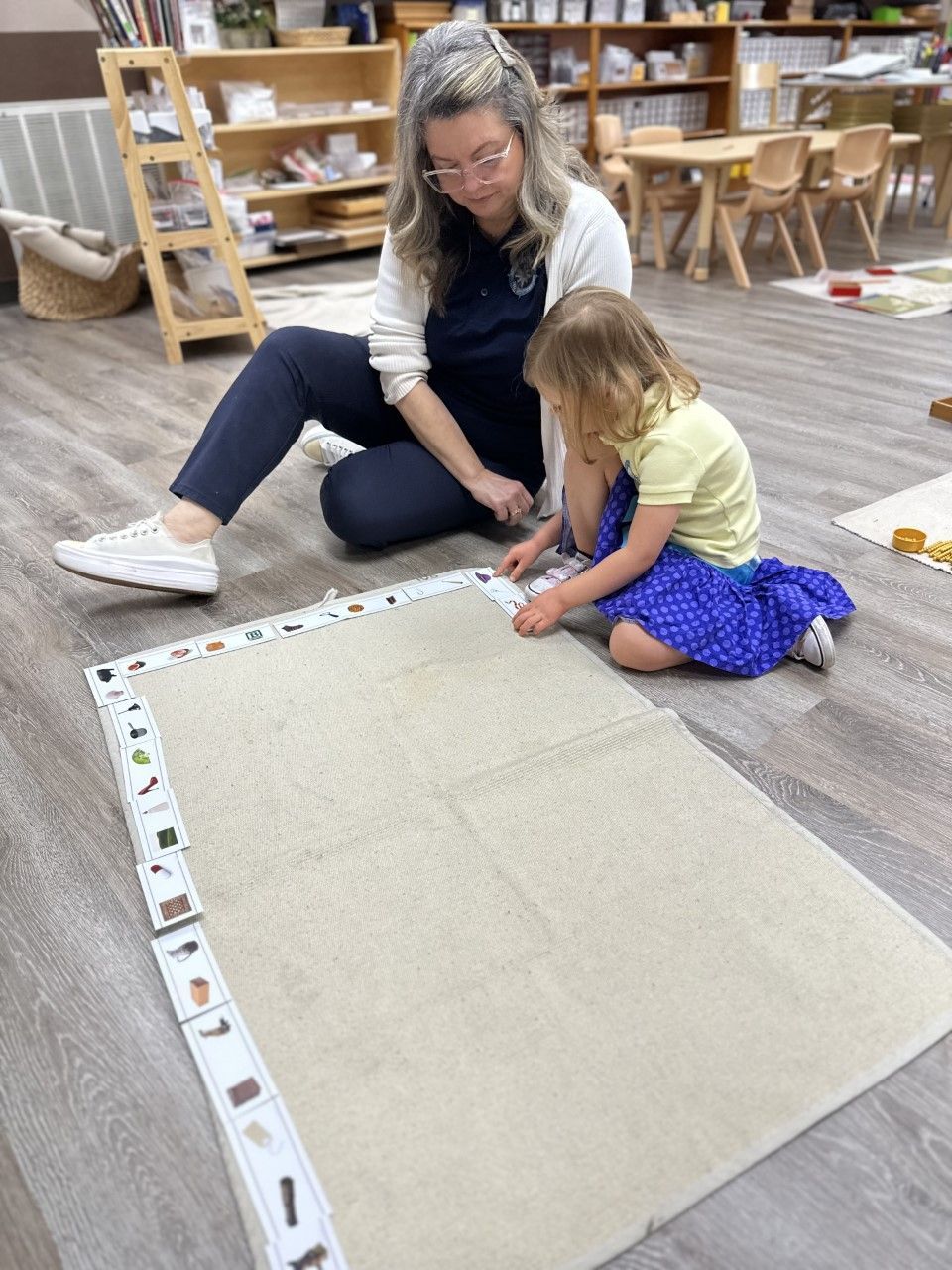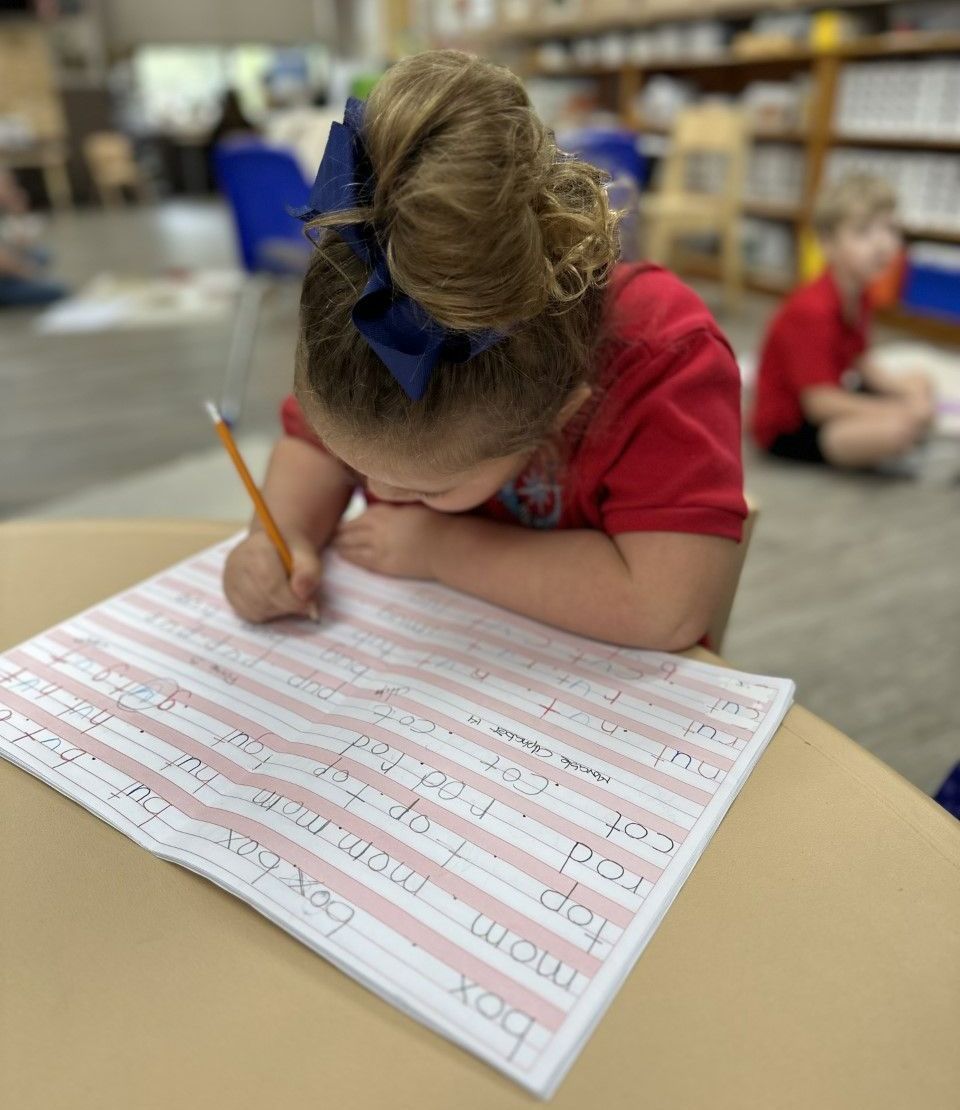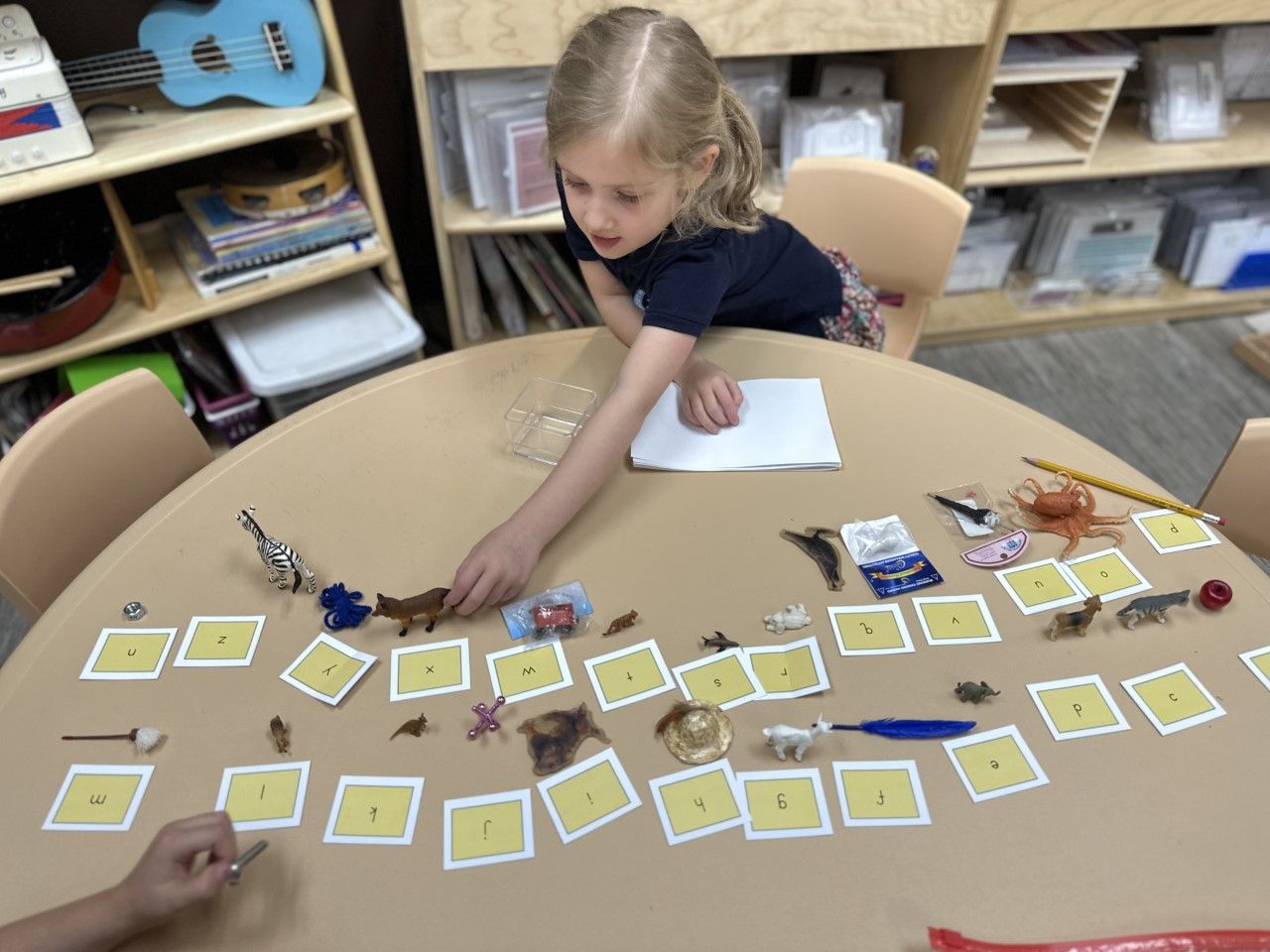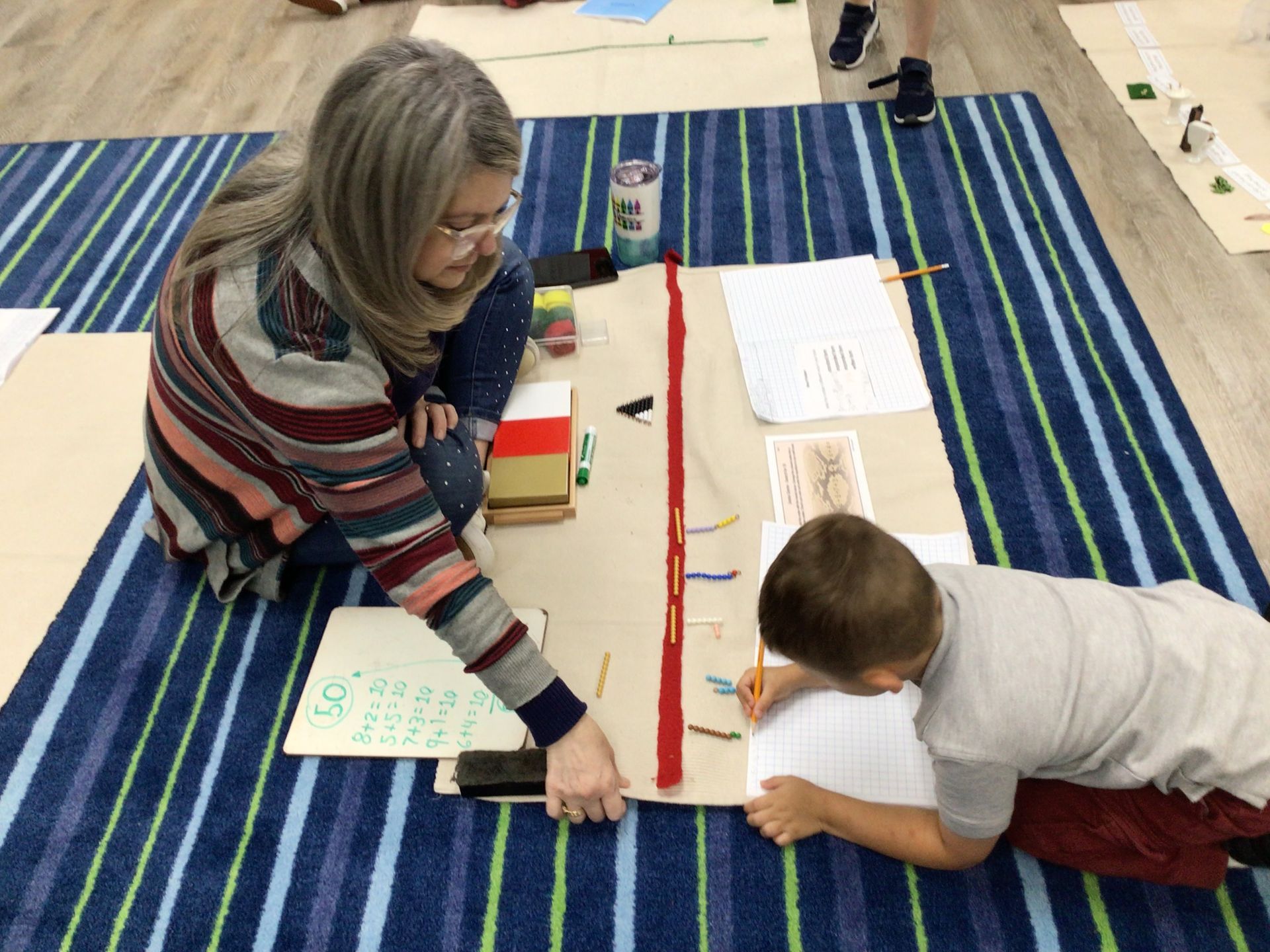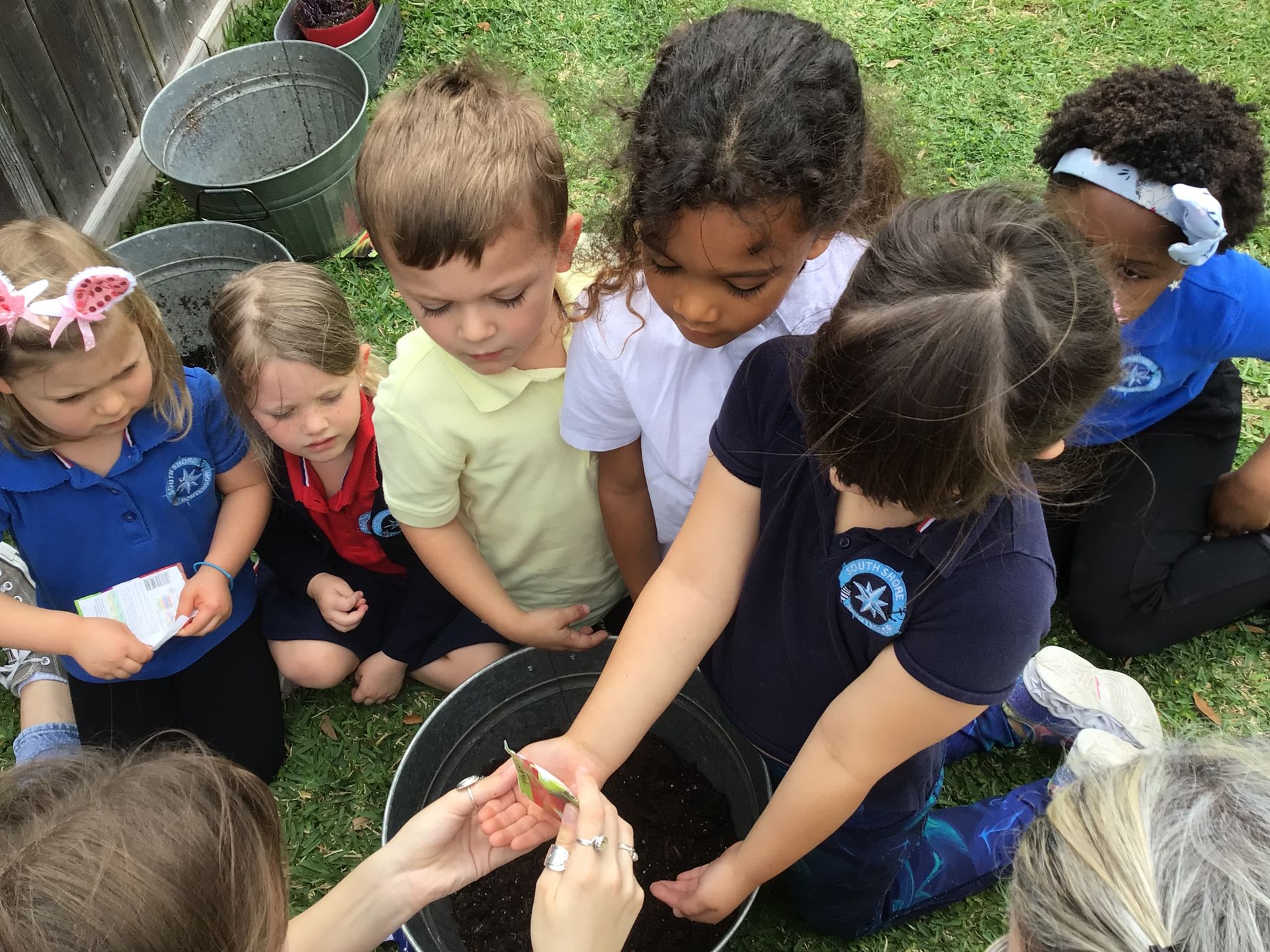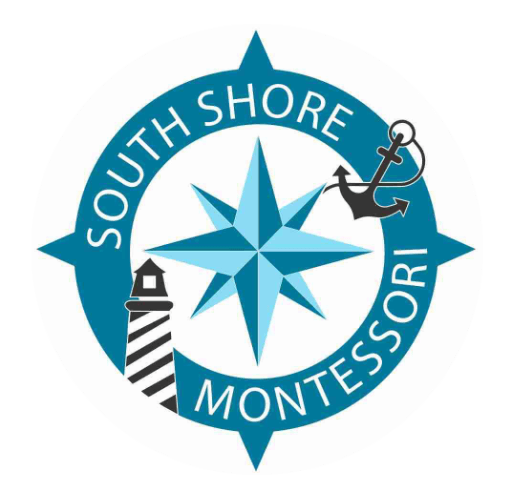Elementary
Schedule 8:15am-3:15pm
Before & After School hours 7:45am - 8:15am / 3:15pm -6:00pm
What we deliver daily at South Shore Montessori
At South Shore Montessori our Elementary Montessori curriculum is extraordinarily comprehensive and perfectly suited to the needs of 6-12 year olds. Our students are ready to move from concrete work into more abstract thinking, and they begin to make connections across curriculum subjects and into the world around them. When your child moves up to our private Elementary school program, they continue to build academic competencies and life skills. Not only do they expand their base of knowledge, but, through our support, they cultivate a desire to know more. Our students love learning, and our top-rated Elementary school program is the place to maximize that enthusiasm.
Student Transition: As students make the transition to our Elementary program, Students spend more time doing research leading up to a formal exhibition in the sixth year. Upper Elementary students collaborate with their teachers in evaluation of their work as they take on more responsibility for their own learning.
Our classroom community: provides a non-competitive, intellectually, and culturally diverse learning opportunity. By participating in an academic environment and community where they are enabled to develop their special gifts and talents, each student discovers their individual voice. That voice becomes the compass that guides each of them as they realize success academically and socially as children, continuing into adolescence and beyond.
Our Teachers guide: children through an advanced curriculum that is individually tailored to their own interests, needs, and abilities. Teachers monitor progress against established benchmarks and expectations for student learning, including academic preparedness, independence, confidence, autonomy, intrinsic motivation, social responsibility, and global citizenship.
Teachers introduce materials to students according to their level of development and readiness. Our students then work with the materials to make exciting discoveries—such as why, when, and how each piece of work is mastered. The teacher uses "The Great Stories" as a springboard for interdisciplinary learning. Each of these lessons is a jumping-off point to key academic areas. These stories spark the imagination of Elementary students and give them a context for further study. Instead of approaching schoolwork as discrete subjects, Our Montessori Elementary students discover the interrelationship between topics and understand how math, language, science and history are important. This reflects the way the world really operates and how adults solve problems. Students take field trips throughout the year, exploring the wide variety of museums and cultural experiences available in greater Houston area.
Standardized Testing: Our students prepare for and perform Pearson's Stanford Achievement Test, also known as SAT10, is a nationally recognized, standardized test to measure the academic progress of students over 13 levels from kindergarten to grade 12. Each grade level has a different test to measure the appropriate standards. The SAT10 is based on national and state grade level standards. This is completed in the spring of each academic school year.
South Shore Montessori: Is a great place to learn, how to learn. We will lay a strong academic foundation for your child. A highlight in our program is our students are together and developing for so many years; allowing them to form their social skills, develop deeper empathy, and build lasting friendships. Elementary students leave South Shore Montessori remarkably confident, poised and ready for middle school and beyond. Your child deserves the absolute best education and South Shore Montessori will deliver the trusted Montessori approach to your child while developing a lifelong love of learning. Our passionate staff is highly skilled, experienced, and certified, ensuring that we are delivering our promise, that your children are cared for at the highest level.
Why Montessori Philosophy is appealing to Elementary parents
The Montessori Method offers an approach to childhood education that has been proven to cultivate critical learning capabilities, problem-solving, and creativity for over 100 years. More than a vessel for private primary education, our top-rated private elementary school programs focus on specific objectives for each stage of development to help every child thrive.
The multi-age groupings of children ages 6 – 9 and 9 –12 (or 6 –12) provide a heterogeneous mix in which children can collaborate and socialize. These inter-age relationships strengthen the entire community. Older children are seen as role models within the community. They support the growth and development of younger children through socialization, assisting with new work, or teaching skills they have mastered themselves. They can also work with younger students in areas of the curriculum in which they themselves may need more practice, without stigma. Younger children follow the example set by the older students and have peers to work with in areas of the curriculum in which they may be more advanced. This multi-age community provides opportunities for all individuals to learn from each other, at times leading, sharing, or serving as role models. It also develops an appreciation of differences.
Within this supportive, inclusive community, children work through the curriculum at their own pace, accelerating during some tasks or taking additional time with others. Montessori students don’t just memorize facts and figures. They also learn the “hows,” “whens,” and “whys,” ensuring that learning takes place on a deep and fundamental level.
How Elementary Children Learn
With guidance from loving teachers, and the freedom to explore and express, our Montessori elementary school students spend time in their classroom building a strong foundation upon which to learn and grow. For returning Montessori students, the Montessori Elementary program expands upon the learning fostered in an Early Childhood program. For students new to Montessori, it orients them to the joys of responsible participation.
What sets Montessori apart?
In the Elementary years—ages 6 – 12—is the individually paced curriculum that challenges children academically and safeguards their well-being and sense of self. Engaging as contributing members of a respectful community, they learn to question, think critically, and take responsibility for their own learning—skills that will support them in later education and in life. The Elementary program is based on the belief that children learn best through movement and work with their hands, and provides cognitive, social, and emotional support to help them reach their full potential.
This includes addressing their needs as they enter a new period of development characterized by:
- A transition from concrete to abstract thinking
- Growing interest in socialization
- Thinking and memory that is enhanced by creativity and imagination
- An interest in fairness, social justice, and compassion
“For parents who invest in a Montessori education beyond the earliest years, you are gifted with a child who goes into the world able to reach their highest potential—not only academically and eventually in their careers, but as human beings who are going to give back and make it a better world.
The Montessori Elementary curriculum contains the following areas of learning:
Language
Reading and writing are integral to all subjects in Montessori Elementary, as children express their interests and satisfy their curiosity. Students master conventions with thorough studies of grammar, spelling, and mechanics. They produce final copies with careful penmanship and keyboarding. They read, analyze, think critically, and compare and contrast literature to support personal opinion and perspective. Using these reading and writing skills, they present ideas through formal and informal presentations.
Math
The ideas of number concepts, place value, numerals, and related quantities are reinforced and expanded upon within the Elementary program. Newfound purposes for familiar math materials provide children with the means to consider number concepts, mathematical operations, and more complex functions, helping to expand advanced mathematical knowledge and understanding.
The Arts
A well-rounded education builds appreciation of the world through all the senses. The SSM elementary program includes a weekly music class, in addition to art experiences that often integrate academic lessons and subject matter. The students have the opportunity to use a wide variety of media to discover their unique perspectives as artists, such as watercolor, ink and acrylic painting, paper mosaic and collage, beading and hand building with clay. Our students also are involved in performing arts with plays an skits done annually. Our best performance to date was Maria Montessori The Musical.
Cultural studies
Cultural studies are interdisciplinary and integrate zoology, botany, anthropology, geography, geology, physical and life sciences, and anthropology. Through these lessons, children explore the interconnectedness of all living things. Additionally, in-depth studies of history, physical and political world geography, civics, economics, peace and justice, the arts, world language, and physical education are introduced.
Science and Social Studies
Interdisciplinary and integrated studies of geology, geography, physical and life sciences, anthropology, and history are built around “Great Lessons,” a series of dramatic stories that explore the origins of the universe, our planet, and the continuous development of human advancement. The laws of physics and chemistry reveal the interdependency of all living things. Beginning with a study of civilization, students explore the contributions of history and what it means to be a responsible citizen and to seek ways to make the world a better, more peaceful place.
Field Trips and Community Service
Dr. Maria Montessori was a big fan of field trips. In her words, it was important for students to take “outings” or to “go out.” In 1948, Dr. Montessori wrote: “The outing whose aim is neither purely that of personal hygiene nor that of a practical order, but which makes an experience live, will make the child conscious of realities … When the child goes out, it is the world itself that offers itself to him. Let us take the child out to show him real things instead of making objects which represent ideas and closing them up in cupboards.” Hence, the Montessori phrase of “going out” was born.
At South Shore Montessori, we take the Montessori tradition of “going out” to heart, as our students take academically aligned, field trips beginning in Lower Elementary. Where lessons in the classroom are a springboard to learning, Montessori outings provide the experiences necessary to move concepts from the abstract to the concrete – to let students apply and expand their knowledge in the world around them.
Practical Life
Within the Elementary program, the Practical Life curriculum expands from the foundation laid in Early Childhood. Practical Life at the Elementary level shifts from a focus on self-care and fine motor skills, to skills that help children connect with their interests in the outside world, organize their time, and take part in their community.
While self-care and appropriate social interactions continue to be supported, lessons that teach responsibility are the focus. Use of tools, such as work plans, to support organization and time management skills, are incorporated into the daily routine.
Teachers and students often work together to post reminders about assignments, projects, and ideas. Using these, children make independent work choices, prioritize activities, and meet deadlines.
Time Management & Goal Setting
In addition to physical skills, the ability to effectively manage time and set goals is critical to each student’s long term success and happiness. At the lower elementary level, each student records their work using a daily goal sheet. This helps them gain a sense of accomplishment and introduces them to the process of goal setting. The upper elementary students set weekly goals, and each week meet with the teachers to determine whether they reached their goals, and how they were or were not successful. Through this process, they recognize the realistic boundaries of available work time, and how much they can accomplish during these times, balancing lessons, projects and their individual daily work. This replicates the ever-changing demands of work life as an adult, and prepares them for life regardless of career path. They gain confidence in their abilities, and pride in their ability to set and reach individual goals.
Helpful Resources:
Parents' Reasons for Sending Their Children to Montessori
https://montessorirocks.org/top-5-reasons-why-montessori-works/
The Absorbent Mind | Montessori Teacher Training and Parent
Studies Shed Light on Merits of Montessori Education
